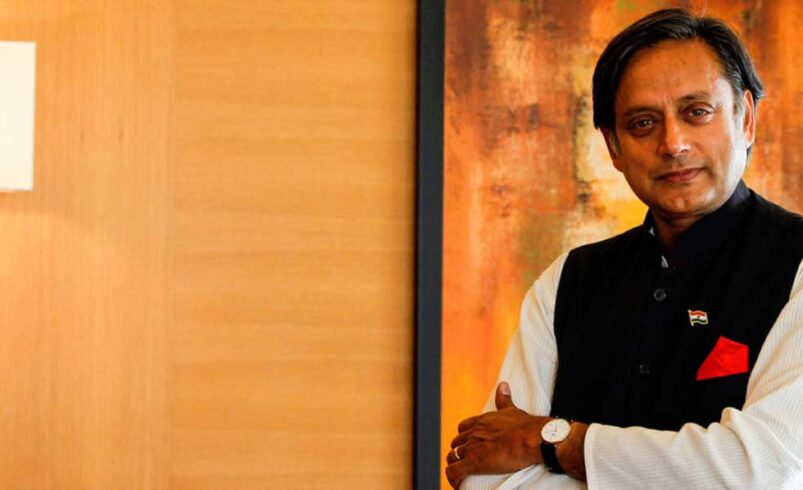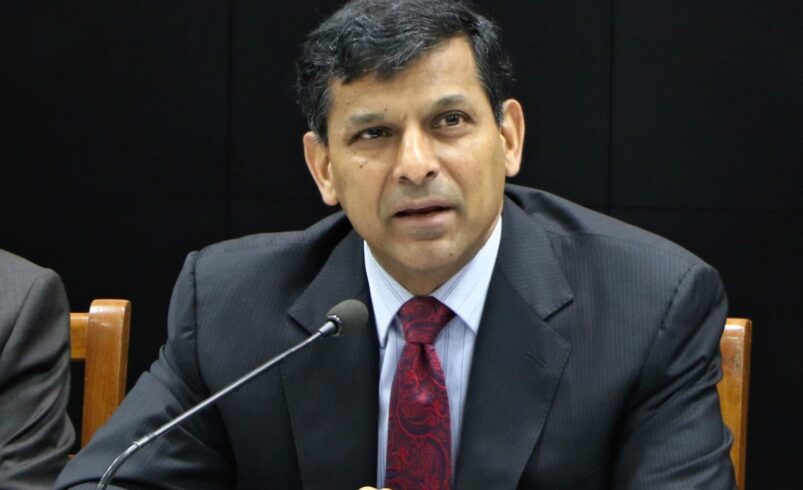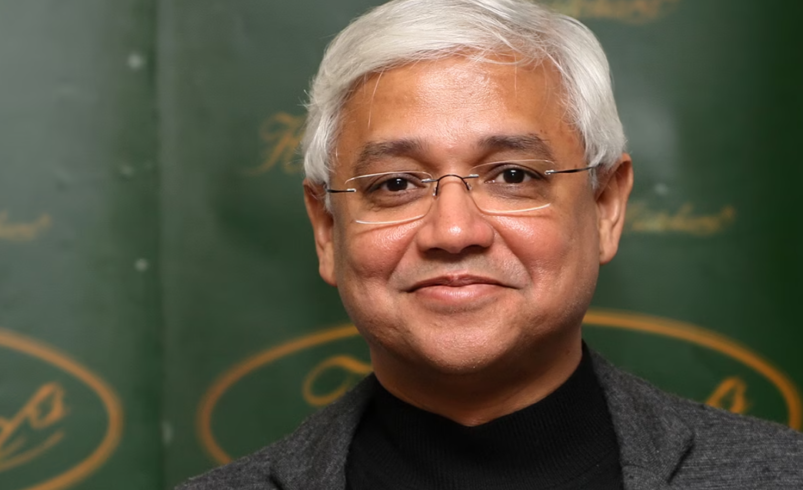
Shashi Tharoor is a prominent Indian politician affiliated with the Indian National Congress. He has held various significant positions within the party and served as a Member of Parliament. Tharoor is celebrated for his eloquence and intellectual prowess, often captivating audiences with his articulate speeches and insightful commentary on a diverse array of subjects. Additionally, he is a prolific writer, with numerous acclaimed literary works to his name, further solidifying his stature as a multifaceted public figure in India
These 14 Shashi Tharoor books offer profound insights into Indian society and politics, presented with flair and wit, making them both informative and engaging reads
Contents [show]
- 1 “The Great Indian Novel”:
- 2 “Inglorious Empire: What the British Did to India”:
- 3 “Why I Am a Hindu”:
- 4 “An Era of Darkness: The British Empire in India”:
- 5 “Pax Indica: India and the World of the 21st Century”:
- 6 “The Elephant, the Tiger, and the Cell Phone: Reflections on India in the 21st Century”:
- 7 “India: From Midnight to the Millennium”:
- 8 “The Paradoxical Prime Minister: Narendra Modi and His India”:
- 9 “The Hindu Way: An Introduction to Hinduism”:
- 10 “Nehru: The Invention of India”:
- 11 “India Shastra: Reflections on the Nation in Our Time”:
- 12 “Bookless in Baghdad”:
- 13 “The Five Dollar Smile and Other Stories”:
- 14 Riot
“The Great Indian Novel”:
Published in 1989 Tharoor’s, “The Great Indian Novel,” brilliantly reimagines the epic Mahabharata within the tumultuous landscape of Indian politics. Seamlessly blending mythology with history and satire, Tharoor crafts a mesmerizing narrative that unravels the intricacies of power, corruption, and human folly.
“Inglorious Empire: What the British Did to India”:
In this meticulously researched work, Tharoor offers a scathing indictment of British colonialism and its devastating impact on India. Drawing on a wealth of historical evidence, he exposes the brutal exploitation, economic plunder, and cultural vandalism perpetrated by the British Empire, challenging prevailing narratives of benevolent imperialism.
“Why I Am a Hindu”:
A deeply personal exploration of Hinduism in the context of contemporary India, “Why I Am a Hindu” offers readers a nuanced understanding of one of the world’s oldest religions. Tharoor reflects on his own spiritual journey while examining the diverse interpretations and practices that define Hinduism, confronting myths and misconceptions along the way.
“An Era of Darkness: The British Empire in India”:
“An Era of Darkness” is a Criticism of British colonial rule in India, which lasted over two centuries before India’s independence in 1947. Tharoor claims that British colonialism was responsible for an array of economic, social, and cultural inequities that continue to afflict India today. The book is renowned for its extensive research, compelling arguments, and outspoken condemnation of British colonisation. Tharoor’s writing is passionate and convincing, and his book has contributed significantly to a new dialogue in India concerning colonialism’s legacy.
“Pax Indica: India and the World of the 21st Century”:
Offering a comprehensive analysis of India’s foreign policy challenges and opportunities in the modern era, “Pax Indica” sheds light on India’s evolving role on the global stage. Tharoor examines the country’s diplomatic relationships, regional dynamics, and aspirations for global leadership, urging readers to rethink traditional paradigms of international relations. The book discusses India’s historical links with other nations and its potential to become a prominent player in international events.
“The Elephant, the Tiger, and the Cell Phone: Reflections on India in the 21st Century”:
a collection of essays on India’s development as a worldwide economic and political force in the twenty-first century. Tharoor’s book delves into the challenges and opportunities that India faces in a rapidly changing world, covering topics such as economic reform, foreign policy, social justice, and cultural identity. Tharoor’s writing is informative and thought-provoking, providing a nuanced and balanced perspective on India’s position in the world.
“India: From Midnight to the Millennium”:
“India: From Midnight to the Millennium” provides a complete history of India since its independence from British colonial authority in 1947. Tharoor’s work is renowned for its broad scope, which includes everything from the country’s political progress to economic development, cultural revolutions, and social changes. Tharoor’s writing is clear and fascinating, and his extensive understanding of Indian history and politics enables him to provide new perspectives on one of the world’s most complex and dynamic nations.
“The Paradoxical Prime Minister: Narendra Modi and His India”:
In this critical examination of Narendra Modi’s leadership and its implications for India, Tharoor offers a balanced assessment of the Prime Minister’s policies, rhetoric, and impact on Indian society. Drawing on his expertise in politics and diplomacy, he dissects Modi’s tenure with analytical rigor, challenging readers to confront the complexities of contemporary Indian politics.
“The Hindu Way: An Introduction to Hinduism”:
A guide to the principles and practices of Hinduism, “The Hindu Way” offers readers a comprehensive understanding of one of the world’s major religions. Tharoor explores the philosophical underpinnings, cultural traditions, and diverse interpretations that define Hinduism, illuminating its timeless relevance in an ever-changing world. He talks about the Great Names of Hinduism, Adi Shankara, Patanjali, Ramanuja, Swami Vivekananda, Ramakrishna Paramahamsa, and many others who made major contributions to Hinduism.

“Nehru: The Invention of India”:
In this illuminating biography, Tharoor delves into the life and legacy of Jawaharlal Nehru. Tharoor’s book stands out for its supportive yet critical portrait of Nehru, who is widely regarded as an influential figure in Indian politics and history. Tharoor provides a rich and multifaceted portrait of Nehru, delving into his strengths and faults as a leader, his vision for India’s future, and his complex interactions with other Indian politicians and thinkers.
“India Shastra: Reflections on the Nation in Our Time”:
A collection of essays spanning a wide range of topics, “India Shastra” offers readers a view of contemporary India through the lens of one of its keenest observers. Tharoor’s incisive commentary touches on politics, culture, economics, and beyond, providing valuable insights into the opportunities and challenges facing the nation in the 21st century.
“Bookless in Baghdad”:
In a deeply personal exploration, Shashi Tharoor’s “Bookless in Baghdad” isn’t a singular story but a tapestry woven from 40 essays. Each thread explores his lifelong love affair with literature, from his own bookshelf to the works of others. He delves into the world of books, both consumed and created, reflecting on his experiences as a reader and writer, the role of critics and reviewers, and the lively buzz of literary festivals. Tharoor celebrates the written word and its enduring power.
“The Five Dollar Smile and Other Stories”:
In this collection of short stories, Tharoor showcases his versatility as a storyteller, offering readers a glimpse into the rich tapestry of Indian life. From the bustling streets of Mumbai to the tranquil backwaters of Kerala, each tale is imbued with vivid characters, evocative settings, and universal themes that resonate across cultures and generations.
Riot
“Riot” is a novel about the aftermath of the 1984 anti-Sikh riots in Delhi, which murdered hundreds of Sikhs following Prime Minister Indira Gandhi’s assassination. The book is renowned for its uncompromising account of the violence and anguish inflicted on regular people during the riots, as well as its denunciation of the politicians and bureaucrats who allowed and promoted the violence. Tharoor’s language is both poetic and direct, expressing the intricacies and contradictions of a country ripped apart by sectarian strife.
Conclusion
Shashi Tharoor’s body of work represents a remarkable synthesis of scholarship, activism, and literary craftsmanship, offering readers a panoramic view of India’s past, present, and future. From searing indictments of colonialism to intimate reflections on identity and belonging, Tharoor’s books resonate with intellectual curiosity, moral conviction, and a profound love for his homeland. Through his writings, Tharoor invites readers to engage critically with the complexities of the Indian experience, inspiring them to envision a more inclusive, just, and enlightened future for all.
You can also read or listen to key-insights from top best selling biographies on the Wizdom app! From Nelson Mandela to Elon Musk, we have a biography for all your reading preferences










